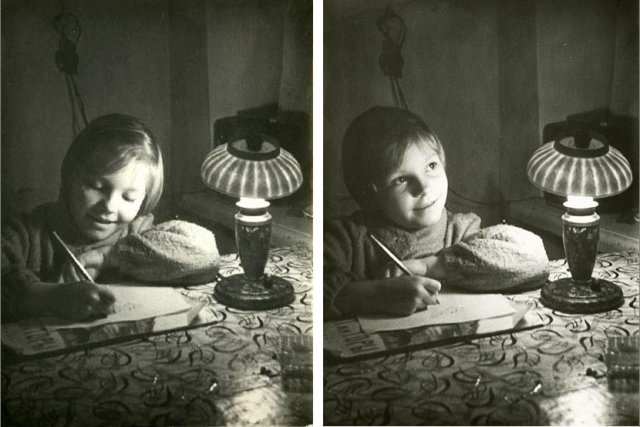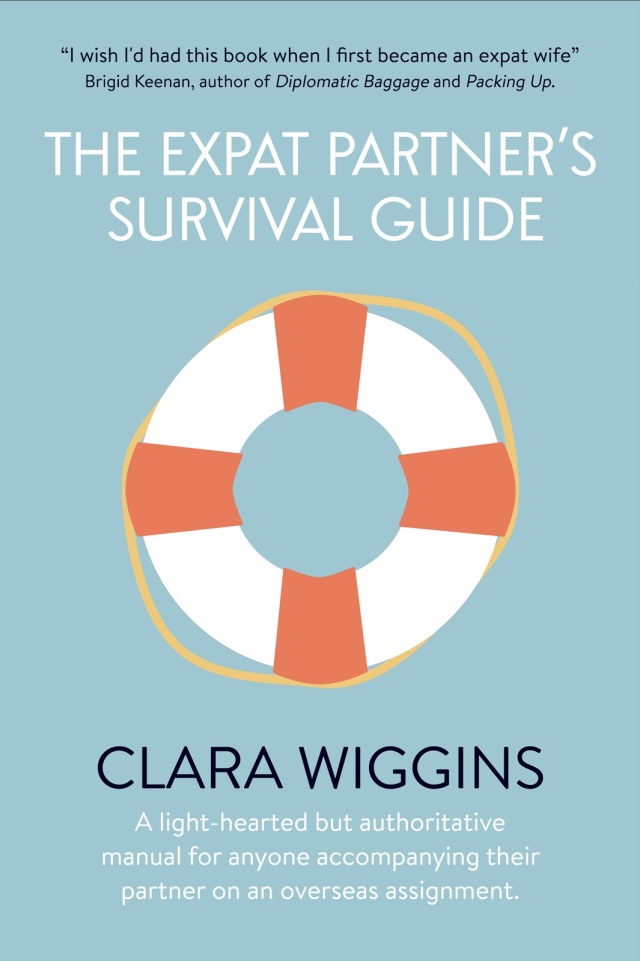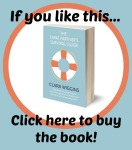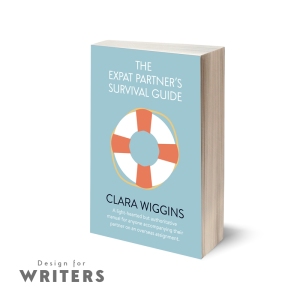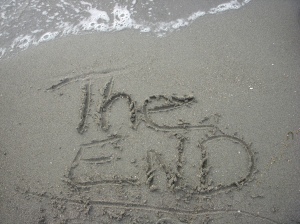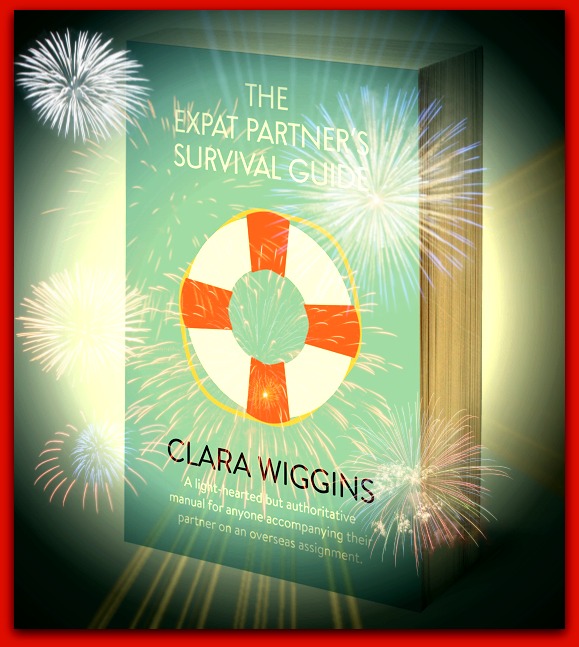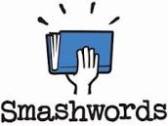I can honestly admit I would LOVE to write another book and a Repat Partner’s Survival Guide would absolutely be something I would do. Except for one thing that a lot of people don’t realise.
When you self-publish a book you are lucky to make back the money you pay to produce it. And that’s without the thousands of hours that you really should be paying yourself for the work that’s gone into writing it. Nope there really is very rarely any money to be made in publishing.
A few years ago, before I finished writing my book, I went on a marketing course for self-published authors. It was just one day long and there were about 12 of us in the room, some already published (at least one fairly successfully, if I recall). The rest of us were newbies – still totally unaware of what going-it-alone really meant.
Well while there were no great suprises, one thing that stuck in my head was this: less than 1% of self-published books sell more than 1,000 copies. That’t not very many. And more than two years after I published my book I am not there yet (although creeping closer).
When I decided to publish my book myself, having had quite a few knock-backs from so-called traditional publishers (the book was too niche…nice idea but it wouldn’t be commercially viable etc), the one thing I knew was that I wanted to be proud of the product I put out into the world. And that didn’t just mean the content – while that was my primary concern at the start, I eventually read enough to realise that was the easy bit. I needed it to be written well, edited well, proof-read well and then I needed a great front cover, good formatting, some reviews, some recommendations…the list goes on.
And much of this costs money (I have never and will never pay for reviews, but I did send a few out free of charge for people to review for me). Money that takes a long time and a lot of work to make back.
Every time I sell a book I get around £1 back (ironically I get more back from the sale of a digital copy than a hard copy). I could put the price up and get more back but I have always wanted this to be an accessible product. Thus I have to sell a lot of copies to make back the money I paid to publish it.
So this is where things got hard. The writing of the book and its production were in the end the (relatively) easy part. What I have been doing over the last two years is marketing it.
The first thing I had to think about was who were my audience and how could I reach them? One problem I have had was that most people who needed this book most wouldn’t know they needed it until it was too late. I really wanted to reach expats BEFORE their move rather than months later when they wondered what on earth had just happened to them. I could tell how hard this would be when my reviews often started with “why didn’t I know about this book when I most needed it?”.
So I did my best – including starting this blog and writing unpaid for other blogs and websites. What I needed was to make people aware that the book existed and where they could buy it so I always made sure to include links to my blogsite. I did enjoy what I was doing, don’t get me wrong – it is a privilege to be able to write about something you love in exactly the way you want to write it. And I also realised how lucky I was that I was able to do it this way – that I wasn’t worried about paying bills and putting food on the table because my husband had a decent job. I also had the time to do it thanks to our overseas move and a wonderfully flexible remote part-time job.
So I wrote and hustled and sweated and wrote some more and I tried to get the word out there and I counted every sale as a success. Slowly the sales figures went up. Very slowly sometimes.
And then one day something changed. I somehow got a commission to write an article (on expat depression, for the Wall Street Journal) and they paid me! Now I realise how naive this sounds – why wouldn’t they pay me? – but you have to remember that not only had I been writing for free simply to let people know my book existed for quite a long time, but I had also had my confidence in my own abilities totally knocked since I stopped permanent work in 2006.
You see although even I forget it sometimes, I have not got to where I am through luck. I am a trained journalist who spent years learning how to write. On top of that, I have a lot of life experience – things that went into my book and now go into my articles. But I gave up my job as a diplomat following the birth of my eldest daughter and since then have only ever worked in low-paid, part-time jobs.
After a while you stop believing you are worth anything more. You doubt your abilities and you don’t for a second think you are good enough to earn a decent salary. It is an age-old story of mothers everywhere and I am not going to labour the point here. But it did mean that when someone wanted to pay me for my writing I was overjoyed. (I should add that the editor who helped me get this first assignment was a woman; all through this process I have been helped by other women and I now do my best to pass this on and help other female writers get to where they deserve to be).
Anyway things took off from here. Not in some huge, overwhelming way but in slow, small steps – I started finding out more and more about paying markets where I could sell my writing, I made friends with other writers and exchanged ideas, I joined some wonderful Facebook groups for writers. And slowly I started getting commissions.
It is still early days but even getting the few paid jobs that I have (including with the Washington Post and the UK’s Independent, as well as the Wall Street Jounal) has boosted my confidence. And in the end it has meant that writing the book and starting the blog was worthwhile – not just because of all the people I have (hopefully) helped with the advice because of where it took me.
So here I am. I doubt writing will ever make me rich and I still have that wonderful part-time job that brings in a small income. But I have finally reached a stage where I can start to believe in myself again, believe that I am worth something, that I do have something to give.
I will still write my blog because I think it is important, and one day maybe I will write that Repat book. But right now I am just loving the fact that people want to pay me for doing what I love most in the world – write.
And I have a final message for all of you out there who feel like I did, that they are worthless and that they will never get back into a role where they feel valued again (either paid or unpaid): don’t give up. It can happen. You are worth it. if I can do it, so can you.
Good luck!
I would love to hear your stories – has anyone else self-published a book? Or got back into the workplace or found a new role after a period of absence?
Photo credit: Appalachian dreamer
I have been blogging since January and up until recently I have loved it. I have never been short of ideas, posts have tripped off my fingers and I have always been able to say what I want to say without tying myself up in knots.
But not anymore. Right now I am feeling a bit bleurgh about blogging.
What do I mean by feeling bleurgh? Well, I have lost inspiration. Not that I don’t have lots of ideas – I do, I have lists of them and keep adding to that list. But for some reason none of them grab me right now. And when I run through that list, I end up feeling even more bleurgh. Thoughts run through my head – why would anyone want to know about this? I think someone else has written about this already. Everyone else writes so much better than I do. No-one is interested.
And all I end up doing is either writing a particularly uninspired post (which either does or doesn’t see the light of day – depending on how bad it is) or writing nothing,
Now there could be a few reasons for this bleurghness. I have been fairly distracted this summer, moving from the UK to South Africa. I was lucky enough to have a whole league of brilliant guest bloggers who ensured my blog wasn’t just tumbleweed and crickets during the days when I was packing, moving, goodbying, flying, unpacking, settling….But brilliant and brilliantly helpful as this was, it did mean that I got out of the habit of frequent blogging.
And as all writers know, writing is like any sport – you need to use your muscles in order to keep up to speed. Let them get flabby and you need to get fit again before the words start to flow. I know I need to get back into the writing habit, which means I need to start having more of a routine.
I think this is probably the biggest problem. When we were at home in the UK, life had a rythm. I knew what happened when at each point of the day, I knew when I had my writing/blogging time and I knew when I didn’t. Here, I am still a bit all over the place (just things like shopping for food takes so much longer as I just don’t know where to find everything – so I can find myself going out to various supermarkets several times a week) and thus my spare “writing” time doesn’t always conincide with the time when I feel most able to write. At least, to write coherently.
I am also finding my concentration is shot, I get distracted by the smallest things (look a new bird! Oh, I need to look up that new German bakery someone recommended), and I am not using my spare time wisely.
But I know I need to get back on top of things. Next month is a new month and I am planning to start being a little more organised with my time. I want to get back into routine, start working on some of the ideas I have, go back to some of my old “occasional” series’ like Memorable Journey’s and Interesting Expats, and perhaps start some new ones. Somehow I need to get my blogging ooomph back, I need to get those words to flow again. I don’t know how to do it, hopefully it will happen naturally the more back into practise I get.
But if anyone has any tips or advice as to how I can stop feeling bleurgh about blogging, please do let me know 
This is serious praise for me because Brigid wrote what I consider the first “go-to” books for expat partners, Diplomatic Baggage, and it’s follow-up Packing Up (which has just come out in paperback, for all of you fellow-fans out there). I reviewed Diplomatic Baggage as part of Review Wednesday a few weeks ago, my first review for that series (which will continue next week once I have recovered from my joy over Brigid’s praise). The reason I chose it as the first book to review was because I think she encapsulates life as a “trailing spouse” so beautifully in her words, reminding us all that whatever we are going through, we’re not the first to go through it and we certainly won’t be the last. And we are never alone.
My mother met Brigid around the time I was writing the last few chapters of the Survival Guide, and told her about the book. Brigid generously asked to see a copy. I sent it off and didn’t hear anything back….which is never what you want. What if she hated it but was too polite to say? In the end, I bit the bullet and pinged her a short email asking if she had recieved it. She immediately emailed back full of apologies, thinking she had already responded (she is apparently very busy with her Palestine Literature Festival) and telling me she thought the book was amazing.
Well, that, to me, is amazing – thank you Brigid!
I was therefore really pleased when I was approached by Susan Toy or Reading Recommendations, a site dedicated to promoting both independently and traditionally published books. In a weird twist of fate, while Susan was sending me an email to ask if I would like to be featured on her site, I was sending her one asking whether she would like to be on this one, talking about her life on the island of Bequia for my People who Live in Small Places series. We both said yes, and today I feature on her website. Look out for her post on this site at a later date.
I really love the idea of sites like Reading Recommendations. Unless you’re very lucky to have been published by one of the Big 5, with all their promotional might behind them (and even then, it’s not always a given that you will get unlimited publicity for your book), marketing and promotion is one of the toughest aspects of publishing. There are many ways to do it, as I mentioned above, but it is SO time-consuming. When I was at the start of this process, someone mentioned to me that a friend of theirs who had recently published a book described marketing as a full-time job, for at least six months. Well, sadly, I don’t have that sort of time available to me as I already have a job, plus a family, so can only do so much.
So thank-you Susan for featuring me, and thank you to anyone who helps to promote me. Don’t forget, if you have read the Survival Guide and have enjoyed it. then please leave a review on Amazon or spread the word in any way that you can.
And in the meantime, please go here to read my piece on Reading Recommendations.
In the meantime, I was also featured in our local newspaper, the Echo, on Friday – you can read about that here: https://www.gloucestershireecho.co.uk/Cheltenham-author-diplomat-s-daughter-writer/story-26344506-detail/story.html#7dshrJCmWdeqDYeT.01
And finally – I am very honoured to have been named as a “Top 10 Expat Blogger” on the Medibroker’s website – https://www.medibroker.com/blog/2015/april/10-best-expat-blogs/, which is very kind of them!
Have a lovely Tuesday everyone.
So anyway back to the task in hand: The A-Z of how I produced the Expat Partner’s Survival Guide.
A is for Amazon. Love it or hate it, it’s what it is. The only best way to sell your books unless you happen to get a deal with one of the big publishers who will place you into stores like Waterstones and WH Smith. Which to be honest is not that likely these days. I am currently struggling to pursuade Amazon to take the Survival Guide OUT of the photography section and put it IN to the living abroad section – honestly, you would think they didn’t want to take quite a large proportion of my profits by selling my books…..I think it will be a love/hate relationship between me and Amazon.
B is for Bubblecow, which is the company I used to edit my book. I really enjoyed working with them and Gary, my editor, gave me some fantastic feedback. He really helped turn it into a proper guide, it’s amazing what a new pair of eyes will see.
C is for Catherine Ryan Howard. Catherine wrote a book called Self Printed, which I recommend highly for anyone thinking of going down the self-publishing route. It not only helped me with things like formatting and marketing, she also held my hand, figuratively speaking, as I set up this blog. She also has an excellent blog, covering all things publishing. What I really love about Catherine is her casual, friendly style – it really resonated with me as I found it so much easier navigating the choppy waters of self-publishing with her words in my ear. C is also for Createspace, which is where you basically create the paperback version of your book (they are a subsidary of Amazon). I found the process pretty simple and userfriendly, so thumbs-up there 
D is for Design for Writers. These were the people who designed my book cover and I can’t recommend them highly enough! I want to write a separate blog post at some point about the process I went through with them (and I will be doing an interview for their site) so I won’t go on too much. But it was like magic, how they knew what I wanted even before I did. I absolutely love my final cover design.
E is for Editing. “Editing might be a bloody trade, but knives aren’t the exclusive property of butchers. Surgeons use them too.” – Blake Morrison. “The first draft of anything is shit.” – Ernest Hemingway. “For I am a bear of very little brain and long words bother me.” – Winnie the Pooh
F is for Facebook. Just like Amazon, Facebook is one of those organisations that you have to work with in this game, even if you don’t like it. Personally I do like Facebook – but from a “business” point of view it’s become very tricky. It used to be you put your information on FB, people liked your page and then they saw your posts. Now, the algorithms have changed and they will only see your posts if they have recently liked your page (or something). So you need to pay to boost your post. Which is okay as far as it goes, but don’t try and pay for an ad as you’ll end up with people on click farms liking you (even if you are not the one paying the clickers – they also click on random sites to try and disguise the places they are being paid to like) – and if you want to know what a click farm is I suggest you read this.
G is for grit. And determination. Had you asked me two or three years ago whether I would ever get this damn book finished, I wouldn’t have been too sure. But I reached a certain stage where I had told enough people about it that I was too embarrassed not to carry on. There were times, lots and lots of times, where I felt like giving up as I just didn’t feel like I was getting anywhere. But inevitably there would be a break-through of one sort of another and I would carry on. Encouragement also helped. If you have any writer friends do tell them to keep going and that they are doing a great job. Just like what I used to tell dads to do when their partners were in labour when I taught antenatal classes!
H is for helpers. This is another word for my contributors, but I already had two things under C so putting them here instead. Over the course of writing the book, I had input from nearly 80 people (men and women, all expat partners or former expat partners) with their tips, advice, views, stories and anecdotes. I couldn’t have written the book without them. Sometimes it was hard going trying to get information from them, but other times they were so generous with their advice. As time went on it became easier, as I got involved in more and more expat groups and forums. The last chapter I wrote was one on relationships and I was able to simply put up a request on this blog and was flooded with replies! So if you were one of those who helped – THANK YOU.
I is for Idea. I had the original idea for the book when I was living in St Lucia and I realised how much harder it is to move and live overseas without the sort of help we were used to getting from our employers (the Foreign Office, the British High Commission etc). Nowadays, more and more people are being posted or going to live overseas and the support for so many of them just isn’t there. Whilst I don’t think for a minute that this book will solve all the problems, I hope it is at least a small step in the right direction.
J is for juggling. Anyone who is a writer, unless they are already well established, will know this one. Writing is unlikely to pay the bills. It also doesn’t do the shopping, pick the children up from school or fold the washing. Yes it’s a fantastic, flexible, work-from-home job. But unless you are in a very lucky position, it’s not one that you are likely to be able to do all day, every day. I have juggled writing this book alongside training to be an antenatal teacher, teaching, working in two other part-time jobs, looking after two children and running a household. Let’s just say things got a lot easier once the girls were both at school full time.
K is for Kindle. Because my audience was always going to be a global one, I knew I wanted a Kindle version of the book. It wasn’t difficult, I just paid the nice man at Lighthouse24 (see below) to format it for me and off I went. So far, sales of the Kindle version are out-ranking those of the paperback by about 2:1. It will be interesting to see if this continues.
L is for is for Lighthouse24. Formatting was the absolute BANE of my life. This was probably the part of the whole process I hated the most . It just used the wrong side of my brain. Luckily I found the very nice Doug at Lighthouse24 to help me. Seriously, for the amount it costs me (ie not too much compared to the whole process!) it was money very well spent. It meant I was able to concentrate on the bits I can do (the writing, the marketing) while they sorted out preparing my manuscript for both paperback and ebook editions.
M is for marketing. This is so important. It’s worth thinking about your maketing even before you start to write. Don’t think it’s something you can put off until you’ve finished the book. Although you do need to get the balance right – I am really glad I didn’t start this blog until towards the end of the book production process as I find it very time-consuming and distracting (mostly because I love it!). But you need somewhere to get your voice heard, you need to network and make links and find people who will review you and share you and talk about you. Marketing strategies will be different dependent on your genre – I have really plugged the social media route as I think that is the best way to reach my audience. But I also have articles going out in various magazines in the coming months, am currently waiting on a call from our local newspaper and am intent on writing guest posts and blogs as much as possible. I attended at Marketing Masterclass in London for how to market your self-published book, which I found useful. I would recommend something similar, or at least reading up on marketing as much as possible, if this isn’t something you know much about. You can’t just write a book, upload it to Amazon and then expect people to buy it if they don’t know it’s there….
N is for No-Going-Back. This is a very personal one for me, but once I had told people I was writing the book, pride stopped me from giving up. I hate failing at anything and once I started, I knew I had to finish.
O is for opinions. These matter. Everyone keeps asking me if I am over the moon about finally publishing the book -the truthful answer is, not yet. No, I will only be happy once I know people like it. Or at least SOME people like it. There is nothing worse than silence…
P is for proof-reader. Another very important part of the publishing process. It’s tempting to skip the proof-reader, but so many independently-published books these days are rushed out, it doesn’t give self-publishing a good name. Make it as professional as you can. I used Charlotte Gledson, who was efficient, friendly and encouraging.
Q is for….what is Q for? It could be for quiet as that’s always handy when you need to write. Find somewhere that is your writing place, a desk, room, corner – somewhere that is just for you and your writing. Or it could be for questions, which I certainly asked a lot of.
R is for Retreats for You. One of the places I did a huge amount of my writing was at a writer’s retreat in Devon. Run by the lovely Deborah Dooley, Retreats for You was absolutely perfect for my needs. I am not going to say much about it here because I intend to do a full review at a future date; but needless to say, going somewhere like RfY where you can just write and write and write is invaluable. R is also for reviews. As I type this there are still none on either the Amazon.co.uk or the Amazon.com sites. It’s horrid having to ask people to leave a review but apparently this is one of the hardest things to get people to do – but it’s really important to get your book noticed and give it authenticity. Hopefully I will get one or two eventually…
S is for submissions. In the early part of this book’s life (early first-stage of labour), I did try submitting it to a few publishers. Needless to say I didn’t get anywhere. I did get some lovely responses, which I did find encouraging. But this book was never going to be commercial enough for traditional publishers. And to be honest once I had been on my marketing course, I realised I would still probably be doing most of the work and getting less of the profit if I was traditionally-published. I knew that self-publishing was the right route for me. S is also for Survey Monkey, which is a great tool for getting answers to your questions. I found people like to respond far more to surveys than they do to straight-forward questions. I don’t know why! Finally, S is for Sales Ranking. A fascinating tool within the Amazon author pages, you can find out exactly how your book is doing compared to all the other books on Amazon. At one point last night I was selling at number 2,103 in the UK (out of more than 6,000,000 books)! You can also find out how you are doing within your section. Given that I am still in totally the wrong section on Amazon.co.uk it’s pretty interesting that I am number 3 in the Digital Photography – Intermediate and Advanced section (although only number 5 in the beginners section).
T is for The End. It was hard, really hard, finally deciding I was done. I could have kept writing, adding and fiddling for ever. To be honest, there was so much more I could have put in. But I had to stop somewhere. At some point I may do a second edition if I think there is enough new material to justify it. Every day I read more expat blogs, articles and posts and think – yes, I should have included that. It’s very frustrating.
U is for underestimation – of both time and costs. In particular, I have found the preparation of the manuscript from finishing the first draft to have taken a lot more time than I expected. Maybe because it was the first time I have done this – but don’t set your heart on publishing on a certain day or even in a certain month. Best to keep it vague – right up until the last moment! Costs, too, will almost undoubtedly be higher than you first anticipated. Set a price and double it, then be grateful if you come in under your estimation….
V is for validation. It was very important for me to have some positive feedback before I published. Luckily I got this from my editor, who told me he loved it. But now I am waiting for validation from people who either don’t know me or haven’t been paid by me. It’s far more important to me that people like what I write than that I get paid for what I write….
W is for WordPress! This blog has been fantastic. I really love the people I have met through blogging here, you feel like my buddies. I was “out there” a bit this week in the unknown territory of social media and I really wanted to be back here on my blog. It feels very supportive.
X is for eXcitement! There has been some – although there is also a bit of an anticlimaX after publication. It’s definitely a marathon and not a sprint!
Y is for YES I am done can I have a holiday now…..
Z is for ZZZZZzzzzzzzzzzzzzzz……
Wow sorry that was a lot longer than I thought it would be. Anyone who has read to the end deserves a medal! But if you are a writer and in particular if you have independently published, I would love to know if you have anything to add to my mega-list.
At one point I was number 3,151 out of 6,000,000 books on Amazon.co.uk yesterday (in fact I think I even got to 2,000 and something but neglected to get a picture of it) – which goes to show just what the competition is! 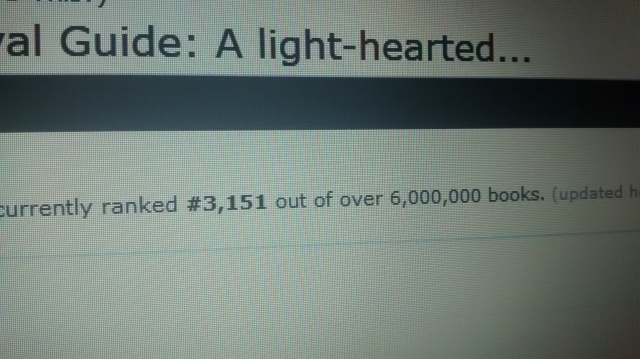 It’s a little easy to get carried away with the numbers. In this age of instant results, I am starting to get a little too addicted to updating and refreshing. How many have visited my blog? How many have liked on Facebook? How many have bought now? What’s my latest author rankings?….
It’s a little easy to get carried away with the numbers. In this age of instant results, I am starting to get a little too addicted to updating and refreshing. How many have visited my blog? How many have liked on Facebook? How many have bought now? What’s my latest author rankings?….
I am sure I will get bored of it eventually (after all, I do have other work to do, plus the marketing doesn’t really stop – I need to get back to writing more articles and posts). But in the middle of it something did happen that made me stop and think. I recieved an email from someone who just said: “From a struggling expat, thank you!”. And I realised this is what it’s all about. It’s not about shares or likes or sales or numbers. It’s about helping people. This book isn’t ever going to make me a millionaire (or even a thousand-aire) but that isn’t why I wrote it. I wrote it to help others going through what I went through, to support them and to hopefully make them feel just a little bit better.
If I can help just one expat partner/trailing spouse/accompanyng partner – call it what you will; if I can make just one person feel better then I have met my goal.
Having said that, I would still like you to buy the book 
About the Book:
From how to organise an overseas move to what to do in the event of an earthquake, the Expat Partner’s Survival Guide is a light-hearted yet in-depth guide for anyone accompanying their partner on an overseas assignment.
In our increasingly globalised society, more and more people are moving to another country to work – and many of these people are taking their partners and families with them.
What does it feel like to sit at home alone in a strange country on the first day your partner leaves for work? How easy is it to find the right school for your child – and what happens if your child hates it there? Where exactly are you going to track down all the ingredients needed for tonight’s dinner? And what happens when it all goes very, very wrong?
This authoritative guide draws on the expert advice of more than 70 expat partners who have been there, done that and survived to tell their tales. The experts include myself, having spent my childhood as a ‘trailing daughter’ accompanying my diplomat parents on various exotic postings including the Philippines and Venezuela. I later saw life from the other side, when I was posted to Jamaica and then took my young family on my husband’s postings to Islamabad and St Lucia.
I am currently preparing for another move, to South Africa.
CLICK HERE TO READ A BIT MORE ABOUT THE BOOK.
Please click on a logo below to be taken straight to the store (also available at European Amazons etc) – and if you like what you read, and you think others would too, then do consider sharing with a friend and/or leaving a review. I would LOVE to hear what you think, good or bad (but mostly good) so feel free to leave a comment or get in touch with me [email protected].
Well, as if by magic, it appears the two have collided in some sort of cosmic ordering and as I approach the day I publish (next week???) I have hit that random number. Plus one.
I’m not going to reveal what the figure is but it is Word Press followers I was interested in rather than Twitter followers. I have lots of the latter (well, “lots” being relative – I have only just reached my first K but that’s plenty for me), but started in January with none of the former. And now I have some. Again, compared to many bloggers it is still a very, very modest number. But I am mighty happy that anyone is following me at all and I hope that some of those followers do occasionally read some of my ramblings.
Statistics is an interesting one, though. When we read our numbers what are we thinking? Is it better that we have lots of viewers who each view one thing? Or fewer viewers that stay longer, browse around and read a few different blogs? I like it when I see I have two or three times as many views as viewers in a day because it means people are interested in what I’m writing about and want to read more. To me, that is more satisfying than lots and lots of hits from people who don’t stick around.
What do you think?
